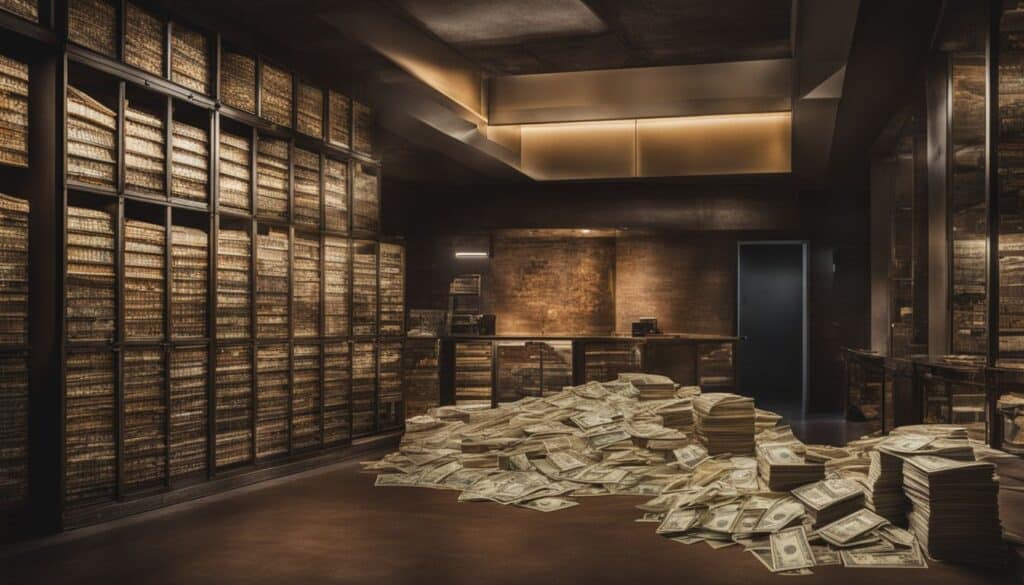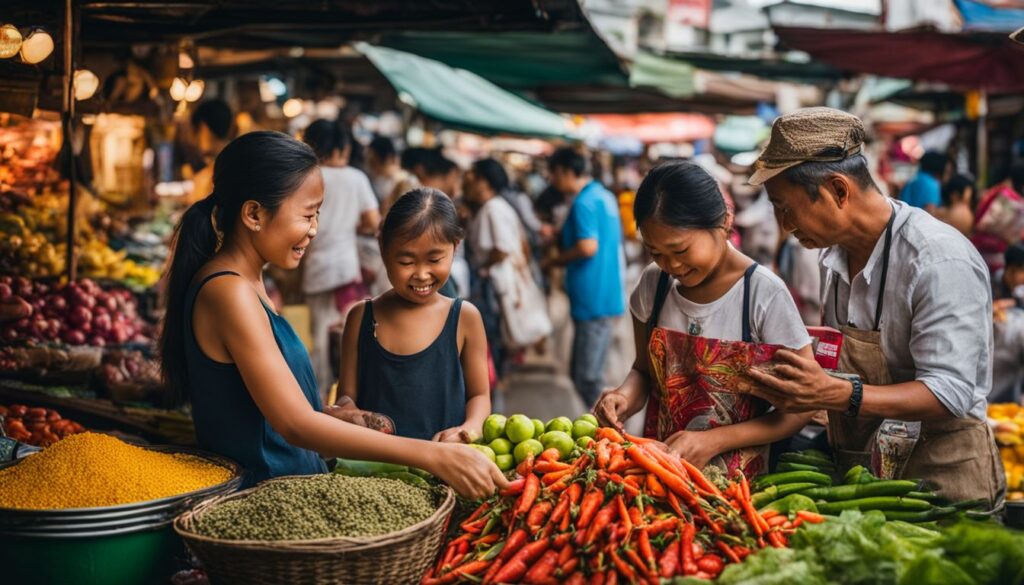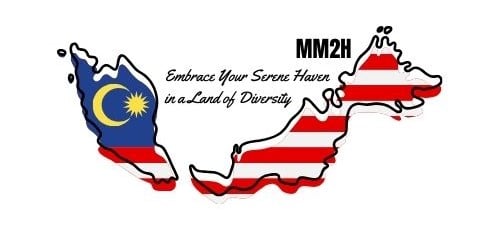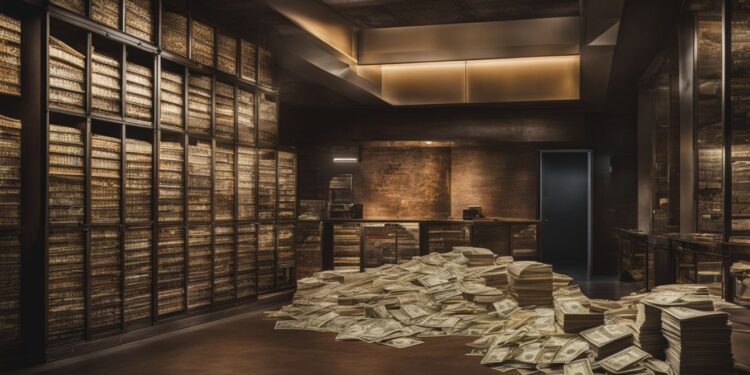Federal, Sarawak and Sabah MM2H Fixed Deposit Usage and Taxation: What Every Expat Should Know!
Navigating the search for the perfect residency program in Malaysia felt like solving a complex puzzle until I stumbled upon the Sarawak and Sabah MM2H programs. These gems offered an eye-opening 80% discount on deposit requirements compared to their federal counterpart, not only easing financial burdens but also unveiling a host of unique benefits these regional options present.
If you’re looking to unravel the complexities of the Malaysia My Second Home (MM2H) scheme, follow along as we dive deeper into what makes these particular programs stand out.
Key Takeaways
- Sarawak and Sabah MM2H programs let people live in Malaysia with lower deposit needs compared to the federal plan. Sarawak asks for MYR 150,000, while Sabah wants MYR 200,000.
- If you join MM2H in Sarawak or Sabah, you don’t pay taxes on money earned outside Malaysia. But money made from shares in Malaysian companies does get taxed.
- Buying a home under MM2H comes with extra costs like stamp duty and Real Property Gains Tax (RPGT), which depends on how long you own your property before selling it.
- People over 50 can work part-time. This makes it easier to stay active and possibly earn more during retirement.
- The rules about buying houses vary by location within Malaysia. Knowing local laws is key before making any purchases under the MM2H program.
Overview of MM2H Programme in Sarawak and Sabah

The Malaysia My Second Home program, or MM2H for short, lets people from other countries live in Malaysia. In places like Sarawak and Sabah on the island of Borneo, this program has some special rules different from the main one run by the country’s government.
Key Differences from Federal MM2H
Sarawak and Sabah MM2H plans are unique. They let you live anywhere in Malaysia but have different financial rules from the federal program. For example, Sarawak asks for a smaller fixed deposit compared to what the federal MM2H requires.
This makes Sarawak more appealing to many people looking for a second home in Malaysia.
Also, if I pick Sarawak’s MM2H, I only need to stay there for 30 days each year. That’s way less than other places ask for. It gives me freedom while still enjoying the beauty of Borneo island and all Malaysia offers.
Plus, with lower fees than Malaysia’s new Premium Visa Program, it feels like a smart choice for those wanting to save yet still enjoy life in Southeast Asia.
Eligibility Requirements
I found out about the MM2H program in Sarawak and Sabah. It caught my eye because it’s tailored for people who want to make Malaysia their second home. Here are the must-know rules if you’re thinking of applying:
- You need to be 30 years old or more. This age rule makes sure that applicants bring maturity and stability.
- Applicants over 50 years can work part-time, showing Malaysia values experience and skills from all ages but still prioritizes economic contribution without taking jobs from locals.
- Main applicants can bring their spouse and unmarried kids under 21 as dependents, making it easier for families to stay together.
Meeting these needs ensures you fit into the MM2H community well, contributing to Malaysia while enjoying a life there with your family.
Federal Fixed Deposit Requirements
To live in Sarawak or Sabah with the MM2H program, you need to put money in a bank. This amount can be different from what you’d put down in other parts of Malaysia.
Comparison with Sarawak and Sabah
So, I’ve been digging into this MM2H program, right? That’s Malaysia My Second Home for those catching up. It’s a pretty sweet deal for folks looking to call Malaysia home for a bit. Got me curious about how things stack up between the federal program and what’s happening in Sarawak and Sabah. Let’s just say, differences are there, and they’re worth a chat.
Sarawak and Sabah, these two states have their own take on MM2H, making things a bit more interesting for potential applicants. I figured, why not lay it out in a table? Makes comparisons a breeze. So, here goes nothing:
| Federal MM2H | Sarawak | Sabah | |
|---|---|---|---|
| Fixed Deposit Requirement | MYR 500,000 (Silver category), MYR 2 million (Gold category) and MYR 5 million (Platinum category) | MYR 150,000 (individual) and MYR 300,000 (couple) | MYR 200,000 (Not official yet whether the minimum amounts would vary based on the size of the family) |
| Eligibility | More Demanding | More Relaxed | More Relaxed |
Caught all that? Sarawak asks for a deposit of MYR 150,000, while Sabah wants MYR 200,000. And here’s a kicker, both offer an 80% discount on these deposit requirements compared to the federal program. Sounds like a deal, doesn’t it?
Now, why does this matter? Well, it impacts applicants, right? Those looking at Sarawak and Sabah might find these states more appealing, especially with lighter financial strings attached. And let’s be real, who doesn’t like the sound of saving some cash?
All in all, diving into the MM2H program opens up a world of opportunities, and these differences between the federal requirements and those of Sarawak and Sabah really do add an interesting layer to the decision-making process. Always good to have options, I say.
Withdrawal of Fixed Deposit

For Sarawak, participants could make partial withdrawal of their Fixed Deposit (maximum 40% of the Fixed Deposit amount) from the second year onwards based on one of the following reasons: Purchase of a house in Sarawak, Purchase of a car in Sarawak, Medical Expenses in Sarawak, and Children’s Education in Sarawak. This also similar which Sabah MM2H. An approved participant is allowed to purchase a residential house in Sarawak at a minimum price of RM600,000 per unit for Kuching and RM500,000 per unit for other divisions. While in Sabah, participant allowed to purchase apartments in Sabah, but they will need to spend a minimum of MYR 600,000.
For Federal MM2H, under Platinum category, applicants can withdraw a maximum of 50 per cent of the amount after a year to purchase properties valued at MYR 1.5 million and above, for healthcare, and for tourism activities in the country. Under Silver and Gold category, they are also allowed to withdraw a maximum of 50 per cent of the amount after a year to purchase properties valued at MYR 750,000 and above, for healthcare, and for spending on tourism activities.
The remaining balance of fixed deposit must be maintained throughout the stay in Malaysia under the MM2H program.
Also, it is not mandatory to use the fixed deposit for buying a house. However, participants may choose to use a portion of it for this purpose.
Impact on Applicants
The Federal Fixed Deposit rules affect me and others planning to apply for the MM2H program, especially if we’re comparing Sarawak MM2H with Malaysia’s other options. For me, choosing between placing a large sum in a fixed deposit in Kuala Lumpur or enjoying lower financial requirements in places like Sarawak is huge.
This decision influences where I might live my second home adventure.
The joy of discovering Malaysia as my second home comes with navigating its varied financial landscapes.
In Sarawak, they ask less from my bank account, which means I can relax more about money. Plus, only needing to stay there 30 days each year gives me freedom. With an 88% approval rate since November 2021, it looks promising for future applicants like myself who prefer easier entry and budget-friendly policies.
Tax Implications for MM2H Participants
Let’s talk money, folks—specifically, taxes for those joining the Malaysia My Second Home (MM2H) program in Sabah and Sarawak. First off, how your bank balance grows in Malaysia might get a side-eye from the tax people.
Yup, if you’re making dough while enjoying that MM2H life, you’ve got to report it. And second, thinking of buying a house? That’s great! But don’t forget about the extra cash you’ll need to hand over for property taxes.
So before you sign up or buy that dream home by the beach, make sure your wallet is ready for these tax talks.
Income Tax Considerations
I found out MM2H participants don’t have to pay taxes on money they make outside Malaysia. This is great news for those of us thinking about joining the program and living in places like Sarawak or Sabah.
If I keep my job online or have a business outside Malaysia, I can enjoy my earnings without worrying about extra taxes here.
Also, there’s something cool I learned about local income from shares in Malaysian companies. It does get taxed. The current tax rate on interest income for non-residents is 15%. But, if you bring over your pension or other foreign funds into Malaysia, the government won’t tax this at all.
Even better, they offer tax exemptions for interest earned on bank fixed deposits and for bringing personal items into the country. Plus, once you are part of MM2H, you’re seen as a local tax resident right away – talk about fast-track treatment!
Property Purchase Taxation
Buying a house in Malaysia? I found out we have to think about taxes. Each state, like Sarawak and Sabah, sets its own minimum prices for us to buy homes under the Malaysia My Second Home (MM2H) program.
This is cool because it means we can choose where to live based on what we can afford. But here’s the thing: different states also mean different tax rates when buying property.
So, I learned that besides the price of the home, there are extra costs too. These include stamp duty, which is a tax paid on legal documents related to property deals. The more expensive the house, the higher this cost can be.
Also, there’s something called Real Property Gains Tax (RPGT). It’s a tax on profit if you sell your house for more than you bought it. But good news! If you keep your home long enough before selling, this tax might be lower.
In short, living in Malaysia sounds great with MM2H! Just make sure you understand all about these extra charges before picking your dream home.
Additional Benefits and Restrictions

So, let’s talk about what you can and cannot do with MM2H in Sarawak and Sabah. You get some cool perks like being able to buy houses and maybe even start a small shop. But there are rules too, like where you can buy property and how much money you need to keep in the bank.
Ability to Work or Start a Business
I found out some cool things about the Malaysia My Second Home (MM2H) program, especially if you’re thinking of staying in Sarawak or Sabah. If you’re over 50, like me, you can work part-time.
This is huge because it means we have the chance to keep busy and possibly make our retirement savings last longer while living in a beautiful part of Malaysia. I’m already thinking of ways to blend my love for arts and culture with a possible small venture.
Maybe something that celebrates both my home country and my second home? The possibilities feel endless!
Retirement doesn’t mean stopping; it means having the freedom to start anew.
Property Ownership Rules
I can buy a house in Malaysia if I join the MM2H program. The amount I must pay for the house changes based on where it is. In Sarawak and Sabah, these rules are not the same as in other parts of Malaysia.
This means I need to check the local laws before buying.
Being part of this program lets me take my kids with me without getting them a special visa for school. This makes moving easier for families who want to live in Malaysia under MM2H, including Sarawak’s MM2H or Sabah’s version of it.
Conclusion
So, we’ve talked a lot about the Sarawak and Sabah MM2H plans. These programs are cool ways to live in Malaysia with less money upfront, compared to the main MM2H plan. They let you put less money in banks here and ask for lower monthly pay to get in.
Plus, they come with tax rules that can save you money if you know them well.
Living anywhere in Malaysia feels great with these plans. Whether it’s buying a house or maybe working a bit, they give some nice perks. The new Premium Visa Program is out there too but think about Sarawak and Sabah’s MM2H for a more wallet-friendly choice.
That’s my take on this whole thing – simple options that open up big adventures in Malaysia without breaking the bank. Want to live in Malaysia? Check out these Sabah and Sarawak deals!




